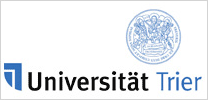China's Policy-Making Process: Industrial and Technology Policy (Trier University)
The People's Republic of China is increasingly perceived as an industrial and technological power that is a serious competitor with the old industrial countries of the West. Since the beginning of Chinese economic reforms in 1978, China’s continuous development from a pure buyer to a powerful supplier of industrial products and technology on the global market has been observed. The political conditions for and restrictions on the Chinese ascent in these key areas, however, are not yet fully understood.
A research team of four, headed by Professor Sebastian Heilmann (associated researcher: Dr. Dirk Schmidt), is investigating the political innovation processes in the fields of industrial and technology policies since the beginning of Chinese economic reforms. The project focuses on questions of policy transfer from East Asia within these policy fields on the one hand, and on a special mode of policy making on the other – that is, the way in which new political action programs in China are developed, formulated, implemented, and revised. The progress and success of Chinese economic reforms has been heavily influenced by a process of decentralized policy experimentation within the framework of centrally determined policy goals. The wide range of local support measures and patterns of organization that emerge from such an experimental process in a country as diverse as China allows Chinese economic policy makers to make use of a variety of alternative policy options in accordance with changing market and competitive conditions.
Since China's reform model is now discussed in other developing and emerging countries as a counter-concept to market-based democracy, which the European Union and the United States promote as the answer to development problems, the investigation of China’s special policy process is of immediate political and practical importance. The project not only makes a contribution to understanding China’s success in the areas of industry and technology but also highlights the actual challenges facing the German economy and German policy in highly competitive fields such as propulsion technologies, environmental technology and high-speed trains.



